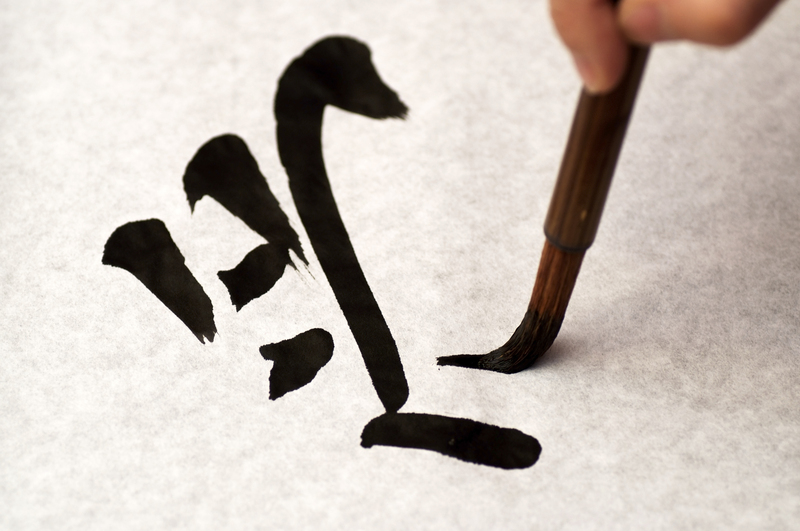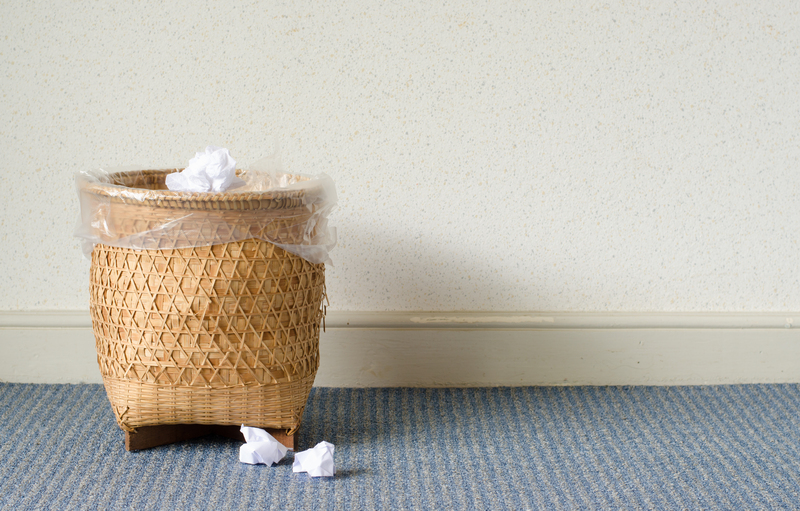From Chaos to Calm: The Power of Decluttering
Discovering the Peace Within: The Art and Science of Decluttering
Are you overwhelmed by overflowing drawers, chaotic closets, and crowded countertops? You are not alone. In today's fast-paced world, many of us find our physical spaces teeming with clutter--objects we no longer need, want, or even notice. This article explores the transformative journey from chaos to calm through the power of decluttering. We'll discuss the benefits of decluttering, practical strategies, and insightful tips to help reclaim your space and restore your peace of mind.

Why Decluttering Matters: Understanding the Impact
The Psychological Effects of Clutter
Clutter goes beyond being just an eyesore; it has profound psychological effects. Studies have shown that messy environments can lead to increased anxiety, stress, and decreased productivity. When our spaces are overrun by unnecessary possessions, it can:
- Cloud mental clarity and focus
- Increase feelings of overwhelm and frustration
- Hinder relaxation and restful sleep
- Cause distractions that limit creativity
The simple act of removing excess items can have remarkable effects on your mental well-being. Decluttering offers a powerful way to transition from chaos to calm, paving the way for a more intentional and fulfilling life.
The Science of Decluttering
Research at Princeton University Neuroscience Institute revealed that physical clutter negatively affects your ability to concentrate and process information. The environment you inhabit has a tangible impact on cognitive performance--every item you see competes for your attention.
Taking control of your surroundings by decluttering is not just about tidiness; it's about improving your overall quality of life.
The Benefits of Decluttering: More Than Just a Tidy Space
Emotional and Mental Clarity
Decluttering offers a pathway to emotional simplicity. When you let go of physical clutter, you often experience a parallel sense of emotional relief. Less stuff often means less stress and more room to focus on what truly matters.
Boosted Productivity and Creativity
An organized environment helps you think clearly and work more efficiently. No longer searching endlessly for misplaced items or feeling overwhelmed by visual distractions, you're able to direct your energy toward meaningful tasks and creative pursuits.
Improved Physical Health
Cluttered homes can harbor dust, allergens, and even mold--all of which can compromise your health. Tidying up creates a cleaner, healthier space and can motivate you to lead a better lifestyle.
Financial Savings and Smart Living
Did you know that decluttering can help you save money? By organizing your possessions, you avoid buying duplicates and become more aware of what you already own. This mindful approach encourages more intentional, sustainable consumption.
How to Start Decluttering: A Step-by-Step Guide
Step 1: Set a Clear Intention
Begin with reflection. Ask yourself:
- Why do I want to declutter?
- What kind of environment do I wish to create?
- How will a clutter-free space support my goals?
Writing down your motivation can help you stay anchored throughout the process.
Step 2: Choose Your Method
Several popular decluttering methods exist, including:
- The KonMari Method -- Based on Marie Kondo's philosophy of only keeping items that "spark joy."
- Minimalism -- Reducing possessions to the essentials for a simpler life.
- The Four-Box Method -- Label four boxes as Keep, Donate, Toss, and Relocate; assign each item in a space to a box.
- One In, One Out -- For every new item brought in, remove another.
Choose an approach that resonates with you, or combine methods for a personalized strategy.
Step 3: Tackle Categories, Not Rooms
Instead of organizing room by room, try decluttering by categories (clothing, books, papers, etc.). This helps you see the volume of items you own and make more thoughtful decisions on what to keep.
Step 4: Systematically Sort Your Belongings
For each item, ask: Do I use this? Does it add value to my life? Would I buy it again today?
Use the following sorting categories:
- Keep -- Items you love and use regularly
- Donate -- Items in good condition that someone else can use
- Recycle / Toss -- Broken, unusable, or unnecessary items
- Relocate -- Items that belong in a different area
Step 5: Organize What Remains
Store items based on use and accessibility. Use containers, shelves, and storage systems to give every possession a dedicated spot. Label when necessary for quick identification.
Common Challenges and How to Overcome Them
Emotional Attachment
It's natural to feel connected to your possessions, especially if they have sentimental value. The key is recognizing the difference between holding onto memories versus holding onto objects. Ask yourself:
- Is this item truly meaningful or simply a habit to keep?
- Would a photograph or small token suffice?
Decision Fatigue
Making hundreds of tiny decisions can be exhausting. Prevent overwhelm by setting a timer and working in short bursts, focusing on one small category at a time.
Lack of Time
Decluttering doesn't have to be a monumental task. Work in 10-minute intervals each day or dedicate a weekend to making significant progress. Small, consistent efforts add up quickly.
The Power of Decluttering in Different Spaces
Decluttering Your Home
Your living environment shapes your daily experience. Start with high-traffic areas:
- Kitchens: Clear countertops, organize pantry items, discard expired foods.
- Living rooms: Sort through books, magazines, electronics, and decor.
- Bedrooms: Simplify wardrobes, nightstands, and under-bed storage.
- Bathrooms: Toss out unused toiletries, expired products, and organize cabinets.
Decluttering Your Workspace
A clutter-free desk can dramatically boost productivity and creativity. Keep only essential supplies within reach and digitize paperwork whenever possible.
- Sort and file important documents
- Toss obsolete papers and outdated technology
- Maintain a clear surface for focused work
Decluttering Your Digital Life
Digital clutter is just as taxing as physical clutter. Take time to:
- Unsubscribe from unwanted emails
- Organize files and photos into labeled folders
- Delete unused apps
- Regularly back up important data
Maintaining a Clutter-Free Environment
Create Lasting Habits
The journey from chaos to calm isn't a one-time event, but an ongoing process. Cultivate habits that sustain your effort:
- Designate time weekly or monthly for maintenance
- Adopt a "one in, one out" mindset
- Regularly review storage spaces and donate items no longer needed
Involve the Family
Decluttering is easier and more effective when everyone pitches in. Assign age-appropriate tasks and encourage children to participate by explaining the benefits of an organized environment.
Minimalism and Mindful Living: Beyond Decluttering
Adopting a Minimalist Mindset
Decluttering often motivates people to explore minimalism, a philosophy focused on living with less and finding joy in simplicity. By asking yourself what truly adds value to your life, you transition from mindless consumption to intentional living.
Minimalism is not about deprivation, but about making room for what matters most.
Environmental Benefits
When you choose to donate, sell, or recycle unwanted goods, you're contributing to a more sustainable world. Less demand for new products means lower resource usage and reduced waste.
Declutter and Thrive: Inspiring Stories
Many individuals report transformative effects after decluttering their spaces:
- Reduced stress levels and improved mood
- Enhanced family relationships and healthier routines
- Greater appreciation for what they already have
- More time and freedom to pursue passions
One reader shared, "Decluttering our home helped us reconnect as a family--our evenings are now filled with laughter instead of frustration over lost items or messy rooms."

Conclusion: Embrace the Power of Decluttering
Moving from chaos to calm through decluttering is a rewarding and holistic journey. By releasing what no longer serves you, you create space for peace, clarity, and joy.
- Reap the mental, emotional, and physical health benefits
- Rediscover your home as a place of refuge and creativity
- Adopt mindful and sustainable habits for long-lasting impact
Let the power of decluttering guide you from chaos to calm--one step, category, and breath at a time.
Frequently Asked Questions About Decluttering
How often should I declutter?
There is no one-size-fits-all answer. Many people find that a seasonal or bi-annual declutter works best, while others prefer a small daily or weekly routine to prevent buildup.
What if I feel guilty letting go of gifts or heirlooms?
Remember, the sentiment resides in the memory, not the item. It's okay to keep things that genuinely matter, but also healthy to free yourself from the burden of unnecessary possessions.
How do I get my family or roommates involved?
Communicate the advantages of an organized space and invite others to participate by assigning specific, manageable tasks--and make it fun!
Ready to embrace the calm? Start your decluttering journey today and experience the life-changing benefits for yourself!